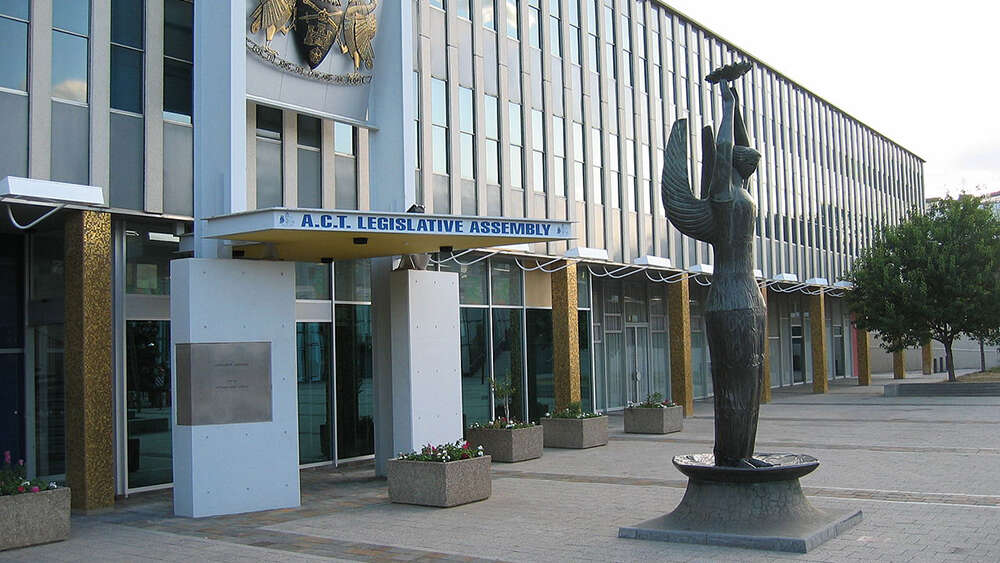The likely legal implications of an ACT bill, aimed at outlawing gay and gender “conversion practices”, have been outlined by John Steenhof, Managing Director of the Human Rights Law Alliance.
The examples Steenhof provides in a paper highlight the tension between the aims of the bill and religious freedom. In particular, they focus upon the practical difficulty of separating religious teaching and practise in family and church settings.
Steenhof gives these examples of conduct he believes “could be criminal” under the proposed laws.
- Parents. If a five-year-old biological girl tells her parents that she wants to be a boy, criminal proceedings could be brought against her parents, school, teachers and doctors if they continue to treat her as a girl, counsel her to love the body she was born with, explore alternative reasons other than gender confusion for this expressed desire – or if they adopt a “watchful waiting” approach in relation to these desires. These are potential practices that seek to change this young girl’s gender.
- Teachers. Criminal proceedings for conversion practices could be brought against a Christian school that teaches the orthodox Christian belief that sexuality should only be expressed between a man and a woman within the confines of heterosexual marriage, and that this is normative for Christians.
- Religious Leaders. A Christian pastor leading a Sunday School class of 13-year-olds and explaining the Bible’s teaching that homosexual practice is not consistent with Biblical doctrine and that all Christians are called to abstinence and celibacy outside of heterosexual marriage could be criminalised.
- Counsellors. A psychologist examining whether a 14-year-old biological girl’s desire to transition to a boy might be related to their autism, or arise as a result of sexual trauma, would be at risk of criminal sanctions.
Advocates for the Sexual and Gender Identity Conversion Practices Bill 2020 – such as the SOGICE (Sexual Orientation and Gender Identity Change Efforts) Survivors group – argue that religious teaching and preaching is left alone by the bill.
“Freedom of belief does not equate to freedom of behaviour …” – SOGICE
SOGICE posted on Eternity‘s Facebook discussion that “they [religious teachers] are not allowed to make therapeutically fraudulent statements. Religious communities are free to call queer people sinful without needing to proclaim that they must also be psychologically dysfunctional.”
They make similar points on their website: “Faith communities and religious Australians currently have the freedom to believe and preach what they like, for example, about whether or not being LGBTQA+ is ‘right’ or ‘wrong’.”
“They are not free, however, to harm or promote harm towards LGBTQA+ people. Freedom of belief does not equate to freedom of behaviour and it certainly does not equate to freedom from consequences.
“There is a marked difference between conservative religious homo/bi/transphobia and conversion ideology. The first is rooted in religious beliefs about ‘sin’, a religious doctrine that does not always align with modern secular and ethical values. Conversion ideology, on the other hand, is a contemporary pseudo-science grounded in psychoanalytic hypotheses developed in the 19th century then later abandoned by modern psychology in the mid-20th century.”
However, the examples raised by Steenhof may relate to “sin” (doctrine) not necessarily to “psychoanalytic hypotheses.”
A definition of SOGICE promoted by the survivors group is “any formal or informal practice, activity or treatment (in any setting) that seeks, or is used, to suppress, eliminate or change a person’s sexual or romantic orientation, gender identity, or gender expression, where that change is deemed necessary due to the instigator’s belief in or adherence to conversion ideology (see the SOGICE Survivor Statement for a detailed explanation of LGBTQA+ conversion ideology).”
The ACT bill’s definition is “sexuality or gender identity conversion practice means a treatment or other practice the purpose, or purported purpose, of which is to change a person’s sexuality or gender identity.”
A key question is whether activity to “suppress” expression of an orientation or gender identity will be regarded as “change”, under the new law. The second category may be more likely, given that “identity” differs in some respects from “orientation”, and is more linked to outward signing, such as clothing codes for example. (A homosexual teen won’t necessarily dress in a certain way, but a trans child is more likely to)
In addition, would praying to change a sexual orientation or gender identity be captured by the bill’s scope?
“Any practice to ‘change’ a ‘person’s sexuality or gender identity’ will be criminal.” – John Steenhof
The SOGICE Survivors definition captures at least many of the examples Steenhof cites. The practical effect of the bill could turn on tricky questions such as “did a preacher or pray-er expect people to change?”
Steenhof believes that “any practice to ‘change’ a ‘person’s sexuality or gender identity’ will be criminal.”
“This is so undefined that it could criminalise parents who provide advice directed at abstinence or celibacy or who encourage their child to love the body they were born with.”
Steenhof believes that the bill is broader than it needs to be and has effects which are “disproportionate to the harms that the Conversion Bill seeks to prevent.”
The bill provides criminal penalties for imposing change efforts on vulnerable people or minors. Compensation with no financial limits can be imposed by the ACAT (ACT Civil & Administrative Tribunal).
A faith based school has been chastised by the ACT goverment “for making parents aware of the government’s authoritarian anti-conversion bill” according to the Australian Christian Lobby. It is likely the debate over the bill will engage passions on both sides.
The Bill and its explanatory statement can be found here. Steenhof’s analysis is here.
The Human Rights Law Alliance is a not-for-profit law firm specialising in religious freedom, speech and conscience and has links to the Australian Christian Lobby.
Feedback
Getting the response to this new law right is important. Please tell us what you think. Feel free to use our Facebook page



